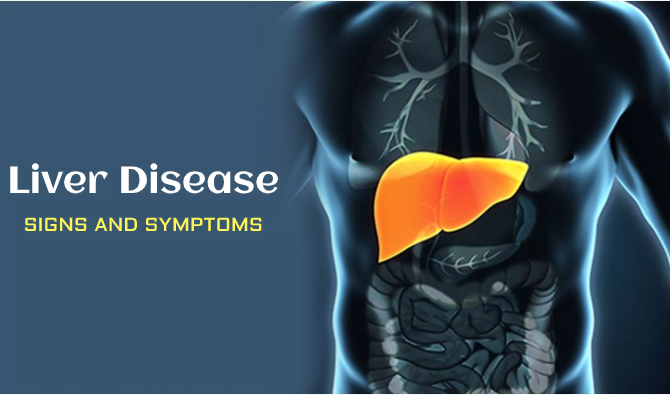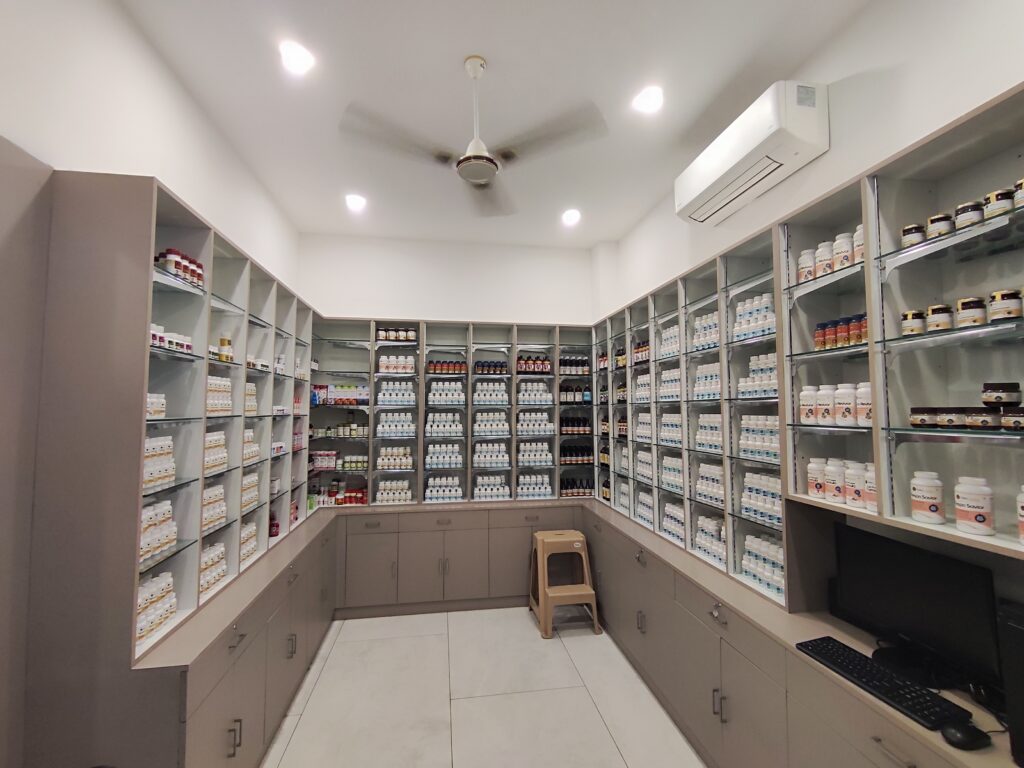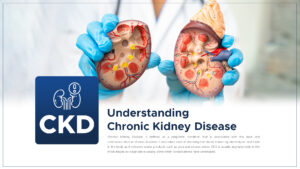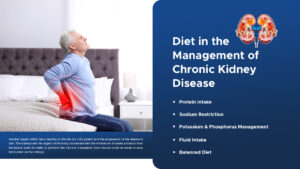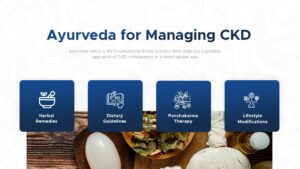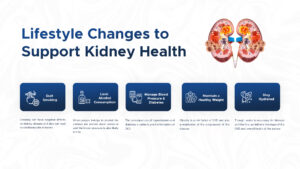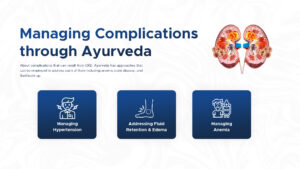CKD is a worldwide sickness that entails a progressive impairment of kidney function and it is estimated that millions of people suffer from the condition. CKD is more of a chronic condition that might cause significant difficulty to patients, nonetheless, patients can lead a normal life as long as their condition is well managed. Other than diet, physical activity, medication, integrative therapies must also be considered in order to have effective management of the CKD. The present article aims to discuss various aspect of CKD and how to live with the disease, including: what is CKD, what diet should be taken and what exercises to be done, the place of Ayurveda, what changes are to be made to one’s lifestyle, importance of mental health, and other treatment options.
Understanding Chronic Kidney Disease (CKD)
Chronic Kidney Disease is defined as a long-term condition that is associated with the slow and
continuous decline of renal function. It also takes care of cleansing the blood, balancing electrolytes and fluids in the body as it removes waste products such as urea and excess water. CKD is usually asymptomatic in the initial stages so diagnosis is usually done when complications have developed. Although many patients with this disease may not initially experience severe symptoms, as the disease advances, patients may develop cardiovascular disease, anemia, bone disease and ultimately kidney failure.
Based on the GFR, a measure of kidney function, CKD is divided into the following five stages. Stage 1 through 3 are characterized as early stages of chronic kidney disease and stages 4 and 5 represent worse levels of kidney dysfunction. CKD is a progressive illness, which when diagnosed early and managed well will not progress to advanced stages or cause complications.
Diet in the Management of Chronic Kidney Disease
Another aspect which has a bearing on the life of a CKD patient and the progression of the disease is diet. The kidneys are the organs of the body concerned with the elimination of waste products from the blood; when its ability to perform this function is impaired, food choices could be made to ease the burden on the kidneys.
Protein Intake: Protein energy has to be effectively regulated in patients with CKD. Though protein is essential in the body the requirement when consumed in excess can exert pressure to the kidneys. Thus, patients are supposed to use a moderate quantity of healthful proteins including fish, poultry products, eggs, and beans and lentils.
Sodium Restriction: Diet also has a close relationship with high sodium intake that causes high blood pressure and accelerates the progression of kidney diseases. Restriction of sodium intake will lead to healthy blood pressure and little or no edema formation. A plethora of foods particularly processed foods, and fast foods should be avoided by CKD patients, fresh whole foods should be taken.
Potassium and Phosphorus Management: CKD also penalizes the provision of the proper balance of potassium and phosphorus in the body by the kidneys. Patients should reduce the frequencies of these foods so that they can moderate their intake of potassium and phosphorus.
Fluid Intake: In CKD, regarding the stage, it may be necessary to regulate the amount of fluid consumed. In the early periods of the condition normal hydration is usually sufficient while in the terminal stage’s fluid administration may have to be limited to prevent fluid overload.
Balanced Diet: The standard nutritional plan which the patient should adhere to includes fruits,
vegetables, whole grain products, and healthy fats. It is recommended for a person with CKD to
consult a renal dietitian to be given diet advice best suited to the patient’s condition and the stage of the disease.
Exercise Guidelines for CKD Patients
Actually, physical activity is important to the CKD patients since they are able to benefit in overall health, weight, blood pressure as well as cardiovascular health. However, exercise routines should be individualized to each patient depending on the stage of CKD, patient’s physical activity level and general health.
Aerobic Exercises: Low intensity exercise like walking, cycling and swimming are some of the best forms of exercise a CKD patient should consider taking. This raises blood flow to the heart, but does not stress the kidneys as most of the metabolic work is done at this state.
Strength Training: Resistance exercise can maintain muscle mass and strength and thus be beneficial for CKD patients because muscle wasting is a common issue for those patients.
Flexibility and Balance: Activities such as Yoga and stretching go a long way in enhancing flexibility and balance thus decreasing the chance of falling over and incurring injury.
Intensity and Duration: Pertaining to CKD, even mild exercises should not be rushed as the patient should start with low intensity, but gradually the exercise duration and intensity can be increased. One has to take caution by listening to the body and not to over exert or over work the body/ muscles.
Medical Clearance: Any person with CKD planning to exercise should first seek advice from a health care provider to determine the fitness of the activities for a person with the condition.
Ayurveda for Managing CKD
Ayurveda which is the traditional medicinal practice from India has a possible approach of CKD management in a more natural way. It embraces the management of the body energies (doshas) by right diet, herbal medicine and exercise.
Herbal Remedies: Punarnava (Boerhavia diffusa), gokshura(Tribulus terrestris) and varun (Crataeva nurvala) are used in Ayurveda to treat kidney disorders and are thought to possess anti-inflammatory properties.
Dietary Guidelines: Maintenance of the doshas and selection of foods that are good for kidneys are some of the recommendations which Ayurveda has to offer. This may include not taking foods rich in salt, spices, and sour foods and the use of kidney friendly spices and herbs respectively.
Panchakarma Therapy: Panchakarma is employed to treat the ailments and improve the function of all the important organs of the body in Ayurveda. Some of the Panchakarma treatments may have positive effects on patients with CKD though taken under the direction of a certified Ayurvedic doctor.
Lifestyle Modifications: In Ayurveda, a person is advised to have a proper and balanced sleeping pattern, regular exercise and management of stress and taking proper diet which would go a long way in the management of kidney and other diseases.
Lifestyle Changes to Support Kidney Health
Quit Smoking: Smoking can have negative effects on kidney disease and also can lead to cardiovascular diseases. Cigarette smoking is one of the worst habits that a person can engage in
and giving it up protects the kidneys.
Limit Alcohol Consumption: When people indulge in alcohol the kidneys are placed under pressure and the blood pressure is also likely to rise.
Manage Blood Pressure and Diabetes: The consequences of hypertension and diabetes in patients are the formation of CKD. It is possible to manage these conditions with the help of specific medications, changes in one’s diet and way of living, and this, in turn, will protect the kidneys from the development of additional damage.
Maintain a Healthy Weight: Obesity is a risk factor of CKD and also precipitation of the progression of the disease. The greater the intake of the nutrients and the more frequent the actions that involve the muscles and the bones, the better the chances of avoiding obesity.
Stay Hydrated: Though, water is necessary for kidneys and the final guideline is the stage of the CKD and overall health of the person.
Mental and Emotional Health Considerations
CKD entails a range of psychological factors and patients’ psychological well-being is another aspect of CKD management. Depression, stress, and even anxiety related to the condition and the effects it may have on the patient’s life may be experienced.
Counseling and Support Groups: The consultations of a counselor or participation in a support group may give the patient emotional support he or she needs while coping with the difficulties of chronic kidney disease.
Mindfulness and Relaxation Techniques: Relaxation techniques such as breathing exercises, meditation and yoga help in controlling stress and also help in achieving emotional health.
Regular Monitoring and Check-Ups
For patients with CKD, adherence to check-ups and follow up, and routine medical check-ups is very vital. This includes basic blood test and urine test and imaging test to evaluate the kidney’s function and for identification of any abnormality at an early stage.
Monitoring GFR and Creatinine Levels: These tests are used in determining the rate of kidney
function and also in monitoring the level of the disease.
Blood Pressure and Blood Sugar Control: However, when these parameters go out of control, the kidney function could be affected any further.
Managing Anemia: CKD may result in anemia therefore, patients must be closely monitored and timely treated.
Managing Complications through Ayurveda
About complications that can result from CKD, Ayurveda has approaches that can be employed to address each of them including anemia, bone disease, and fluid build-up.
1. Managing Hypertension:
- Dietary Adjustments:
- Reduce Salt: Ayurvedic guidelines often recommend avoiding excess salt to manage hypertension.
- Incorporate Cooling Herbs: Herbs like Shankhpushpi and Brahmi can help in calming the nervous system and supporting cardiovascular health.
- Lifestyle Practices:
- Yoga and Pranayama: Practices like Sukhasana (easy pose) and Anulom Vilom (alternate nostril breathing) can help reduce stress and manage blood pressure.
2. Addressing Fluid Retention and Edema:
- Herbal Remedies:
- Punarnava (Boerhavia diffusa): Known for its diuretic properties, it can help in reducing fluid retention.
- Gokshura (Tribulus terrestris): Also supports kidney function and helps with edema.
- Dietary Considerations:
- Reduce Heavy and Salty Foods: Emphasize light, easily digestible foods.
3. Managing Anemia:
Ayurvedic Herbs for Anemia: Some of the natural treatments for anemia include using Ashwagandha (Withania somnifera) and Shatavari (Asparagus racemosus) that helps in providing energy and taking care of tiredness.
Diet:
- Iron-Rich Foods: Incorporate foods like dates and pomegranate, which are traditionally considered beneficial for improving blood quality.
Integrative Therapies and Alternative Treatments
Integrative therapies include mainstream medicine- and non-mainstream medicine therapies and aim at a holistic treatment of patients diagnosed with CKD.
Acupuncture: According to several investigations, CKD symptoms could be improved by acupuncture and the general health status enhanced.
Massage Therapy: Massage therapy might offer relaxation, increase blood circulation and decrease pain and discomfort among patients with CKD.
Nutritional Supplements: Some scientists have reported that there are some supplements with positive effects on CKD patients, including omega-3 fatty acids and coenzyme Q10; however, they should be taken as advised.
Patient Stories and Experiences
Patient: Ravi, 55, Stage 3 CKD.
Experience: Alongside conventional treatments, Ravi used a low-protein diet, yoga, and Ayurvedic herbs like Punarnava and Gokshura. He saw a stabilization in kidney function and reduced symptoms.
Patient: Meera, 62, Stage 2 CKD with edema.
Experience: Meera combined Abhyanga (oil massage), Virechana (purgation), and a low-salt diet. She experienced significant reduction in swelling.
Patient: Lakshmi, 58, Stage 4 CKD with high phosphorus.
Experience: Lakshmi used Gokshura, avoided high-phosphorus foods, and had regular Basti treatments. Her phosphorus levels improved.
Conclusion: Empowering Yourself to Live Well with CKD
It is true that if patients with CKD have proper orientation towards life, a good life is still possible. By understanding the condition To effectively manage Chronic Kidney Disease (CKD) and enhance your quality of life, adopt a holistic approach that combines conventional treatments with complementary practices such as Ayurveda. Customize your care with a balanced diet, regular exercise, and stress management. Stay engaged with ongoing health monitoring and educate yourself about your condition.



